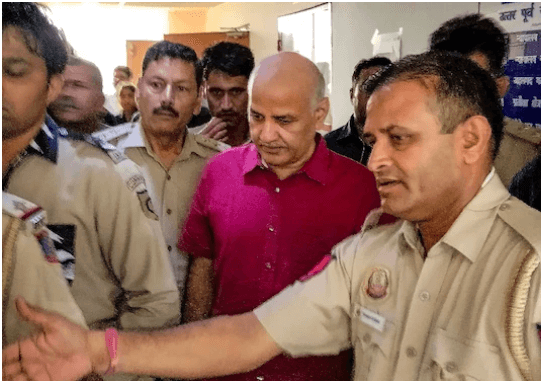Supreme Court of India recently granted bail to Manish Sisodia, a prominent leader of the Aam Aadmi Party (AAP) and former Deputy Chief Minister of Delhi, in connection with the controversial Delhi Excise Policy case.
This development marks a significant turn in a legal battle that has drawn considerable public and political attention. Sisodia, who has been a key figure in the AAP government and played a pivotal role in shaping its education and public welfare policies, had been embroiled in allegations of corruption and irregularities linked to the now-scrapped Delhi Excise Policy.
The case against Sisodia stems from accusations that the Delhi government’s 2021-22 excise policy, which was aimed at restructuring the city’s liquor trade, had led to undue benefits to certain private entities. The policy was intended to increase revenue for the state by allowing private players more significant involvement in the liquor distribution and retail sectors, shifting away from the previously government-controlled system. However, Supreme Court and the policy soon attracted criticism, with allegations that it was manipulated to favor specific companies in exchange for financial kickbacks.
The central government, led by the Bharatiya Janata Party (BJP), accused the AAP government of corruption, leading to investigations by multiple agencies, including the Central Bureau of Investigation (CBI) and the Enforcement Directorate (ED). Sisodia, who was the Finance and Excise Minister of Delhi at the time, found himself at the center of the controversy, with the agencies alleging that he was directly involved in the alleged wrongdoing. Sisodia consistently denied any wrongdoing, asserting that the policy was formulated with transparency and was designed to break the cartelization in the liquor trade.
The legal proceedings saw Sisodia being arrested and detained, causing a political uproar, with the AAP leadership accusing the central government of using investigative agencies to target political opponents. The case became a flashpoint in the ongoing power tussle between the AAP government in Delhi and the central government, which has often been accused by opposition parties of overstepping its bounds to weaken state governments led by rival parties.
Sisodia’s bail plea was initially rejected by the lower courts, with the judiciary expressing concerns about the seriousness of the allegations and the potential for tampering with evidence. However, his legal team moved the Supreme Court, arguing that the charges against him were politically motivated and that the investigations had already made substantial progress, reducing the risk of interference. They also highlighted Sisodia’s contributions to public service and governance in Delhi, contending that his continued detention was unjustified.
In granting bail, the Supreme Court considered several factors, including the duration of Sisodia’s custody, the progress of the investigation, and the arguments presented by his defense. The Supreme Court emphasized that while the charges were serious, prolonged pre-trial detention without substantial justification could not be sustained. The ruling was seen as a balanced approach, ensuring that the legal process could continue without infringing on Sisodia’s right to personal liberty.
The Supreme Court’s decision to grant bail to Sisodia has significant implications, both legally and politically. For Sisodia and the AAP, it represents a momentary reprieve and a chance to refocus on their governance agenda in Delhi. It also serves as a reminder of the judiciary’s role in safeguarding individual rights against potential excesses by the state. However, the case is far from over, with the investigations continuing and the trial expected to proceed in the coming months.
Politically, the bail order is likely to bolster the AAP’s narrative that the charges against Sisodia and other party leaders are part of a broader strategy by the BJP to undermine their government. The AAP has positioned itself as a significant opposition force, particularly in Delhi and Punjab, and this case has been used by both sides to rally their respective supporters. The AAP’s leadership has already hailed the Supreme Court’s decision as a vindication of their stance, while the BJP has reiterated its commitment to fighting corruption and ensuring accountability in public office.
The broader ramifications of this case also touch upon the contentious relationship between state governments and the central government in India’s federal structure. The frequent clashes between the AAP government in Delhi and the Supreme Court and central government have often centered on issues of administrative control, the use of investigative agencies, and the distribution of power. The outcome of the Excise Policy case, in which Sisodia plays a central role, will likely influence these dynamics going forward.
The Supreme Court’s decision to grant bail to Manish Sisodia in the Delhi Excise Policy case is a significant legal and political development. It not only affects the trajectory of the ongoing investigations but also plays into the larger narrative of political rivalry and governance in India. As the case progresses, it will continue to be a focal point of public attention, with potential repercussions for the AAP, the BJP, and the broader political landscape in the country.
Stay informed with the latest updates – click here .

